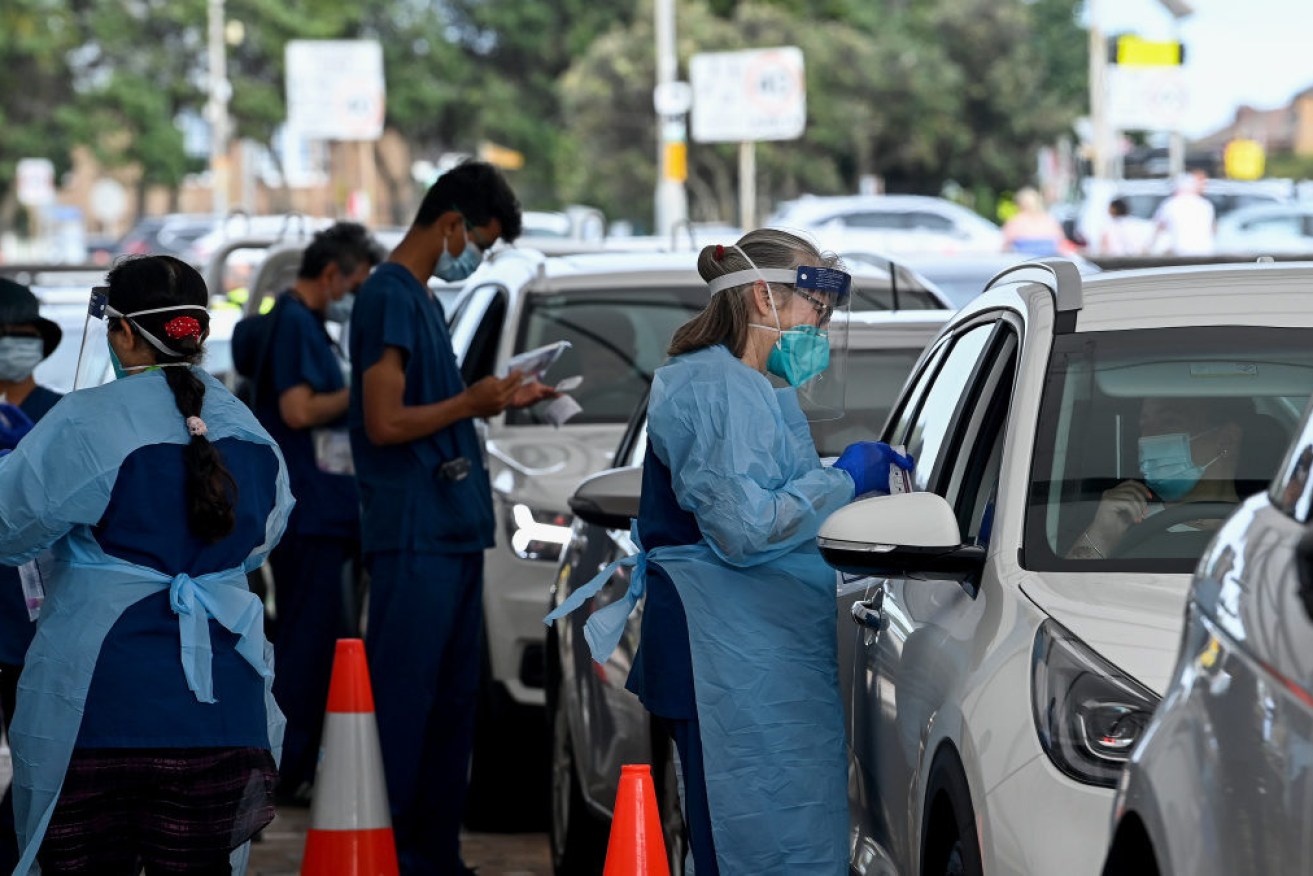Cases unlikely to peak before February after grim milestone reached

Close contacts of people with COVID-19 will no longer have to isolate as long as they test negative. Photo: AAP
Australia has passed the grim milestone of more than 500,000 COVID-19 cases since the pandemic began.
The mark was passed on Tuesday after almost every jurisdiction posted record-high daily totals, with more than 47,000 new infections reported nationally and experts warning cases were unlikely to peak before February.
Australia’s Deputy Chief Medical Officer Sonya Bennett also told reporters on Tuesday afternoon there were likely more cases in the community than were being officially recorded.
She said experts were monitoring the impacts on the healthcare system and hospital capacity, and asked people to wear masks, avoid crowded indoor venues and get a booster if eligible.
“There are things we can do now to work together to bring those case numbers under control,” she said.
“The booster program is really the single most important thing we can all do.”
Rapid test pressure
The rise in cases comes as Prime Minister Scott Morrison is under increasing pressure to make rapid antigen tests free, with widespread shortages continuing.
Finance Minister Simon Birmingham said on Tuesday more than 100 million rapid antigen test kits would become available in the coming weeks but did not provide a set date.
He said the federal government was discussing a plan to ensure concession card holders and others would have access to subsidies and discounts on rapid tests.
But Opposition Leader Anthony Albanese lashed out at the government’s handling of the issue, calling for greater access to rapid tests.
“The fact is this government is responsible for the largest public policy failure in Australian political history,” he told reporters on the NSW Central Coast.
“Australians are being told, ‘You’re on your own and go out and get a rapid antigen test’, but they’re not available in so many areas.
“If people are lucky enough to find one, they’re not affordable. And for many people, it’s simply pricing out access to important healthcare.”
Although Mr Albanese has not called for the tests to be made free, he has urged the government to make them more affordable.
‘Massive policy shift’
Australian Council of Social Service president Peter McNamara urged the government to secure better access to COVID-19 tests for the vulnerable.
“It’s a massive policy shift from providing free PCR testing for everyone, to expecting people and organisations to pay for their own rapid antigen tests,” he said.
“This is the worst time of the year for a sudden change of government policy like this.”
Australian consumer watchdog chief Rod Sims said the ACCC was closely monitoring reports of price gouging on rapid tests and promised to crack down on offending retailers.
Boosters critical
The rapid test shortage coincides with the expansion of the country’s booster program, with an extra four million people becoming eligible from Tuesday.
The gap between second and third doses has been reduced to four months, and will shorten to three at the end of January.
Senator Birmingham said booster shots were critical following the Omicron surge.
“Australian health care workers are doing an incredible job with demand to support testing services,” he told reporters in Adelaide.
“All the different avenues of distribution (of booster shots) are crucial, whether it’s state clinics or GPs or pharmacies.”
Children aged five to 11 are also set to get the vaccine from January 10.
Senator Birmingham said there was ample vaccine supply.
“We have doses ready and can start the childhood program on time next week, with the additional surge coming through of different channels of vaccine delivery,” he said.
There were 23,131 new cases reported in NSW on Tuesday, along with two deaths, while Victoria posted its first day above 10,000 cases, with 14,020 infections and two deaths.
The ACT and Tasmania also had one-day records, registering 926 and 702 cases respectively.
There were 5669 in Queensland, while South Australia had 3246, 75 were detected in the Northern Territory and Western Australia had 14 new cases — all related to interstate or international travel and now in quarantine.
Cases unlikely to peak before February
Monash University infectious diseases modeller Michael Lydeamore, who works on the Doherty Institute modelling given to national cabinet, told The Australian Financial Review that cases were unlikely to peak before February.
He said Australia was likely to take longer to reach its peak than South Africa did as the latter had a higher infection rate before Omicron hit.
“If you think about places where Omicron has peaked quickly, which is really only South Africa, they had a really high infection rate before Omicron too,” Dr Lydeamore said.
“So because they had so much immunity floating around from that [natural immunity lasts longer than initial vaccines], it sort of acted how our boosters will.”
-with AAP








